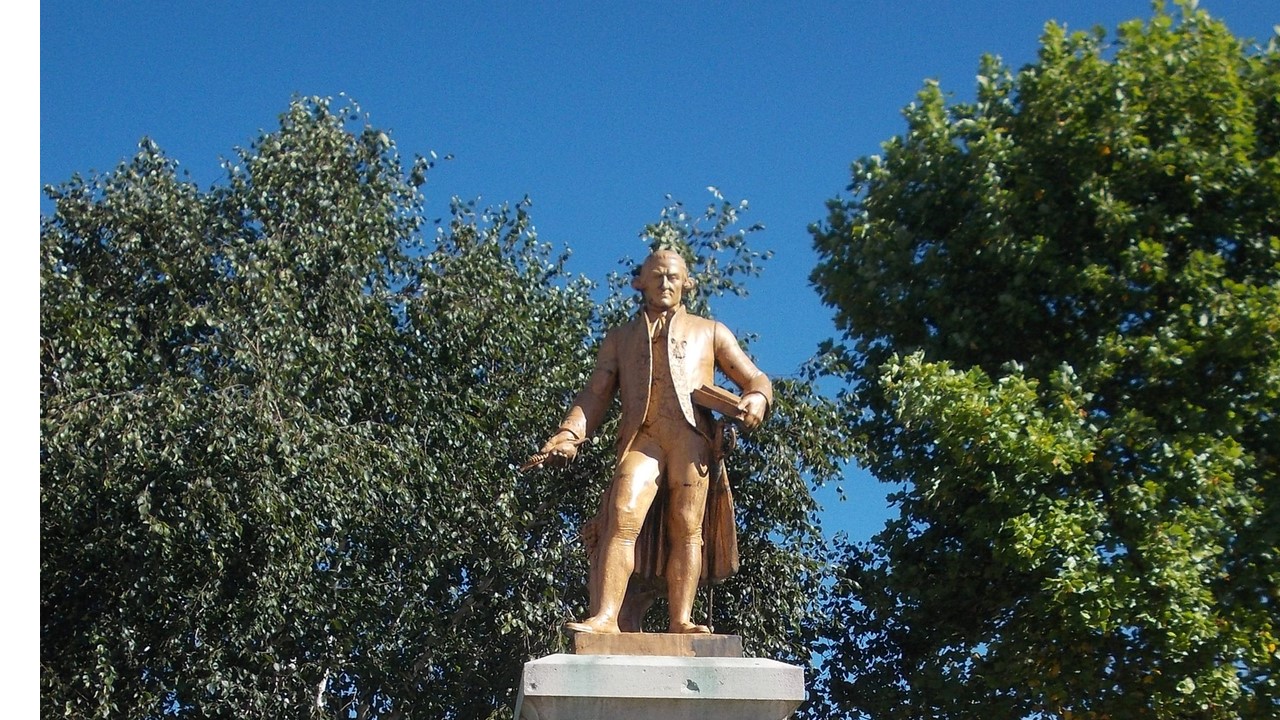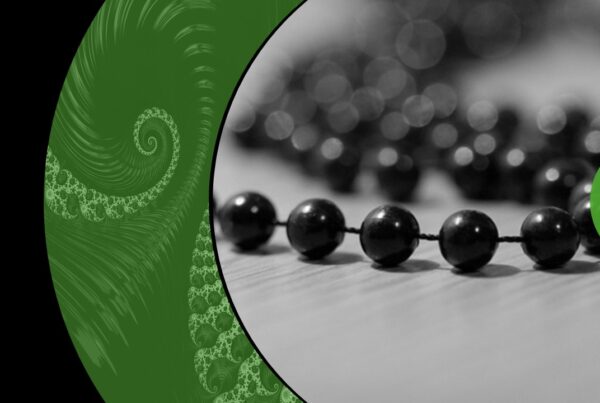1759: Prussia, Prison, and Potato
My eyes open, and I glance around. The first light of dawn flickers through the grilled windows. Mon Dieu! How did I get here?
I, Antoine-Augustin Parmentier, am a pharmacist with no grand delusions of battle. Yet, I am languishing in this cramped cell in Hanover, Prussia, as a prisoner of war.
In what seems a lifetime ago, I remember a conversation with Maman.
“Mon Coeur, what do you want to become when you grow up?”
“I want to make you proud,” I reply almost immediately. My mother’s green eyes shine.
“Antoine, there is no greater pain in this world than going to bed with an empty stomach and a heavy heart. Promise me that you will help anyone who comes to you seeking food.”
I promise, and she twirls me around. I know how passionate she is about feeding the hungry. After my father died, we had very little. Yet Maman never turned away any poor person knocking at our door, seeking left-over scraps.
In the bunk above, I can feel my cellmate stirring. A French soldier of the name Jean-Luc. As he climbs down, I see that he is nervous and pale. He tells me that he is from Normandy and has a sweetheart anxiously awaiting his return.
“And you, Monsieur?” he inquires.
“I grew up in Montdidier. One of my relatives is an apothecary. I trained under him, and when I had learned all that I could from him, I moved to Paris. The pharmacy I work for decided that we must support the French army in the war against Prussia, and you know the rest.”
I don’t tell him that war has made me age beyond my twenty-two years. I tended to the wounded and managed outbreaks in military hospitals, day-in, and day-out. Until the day I was captured.
We smile at each other, trying to mask our fears. Our conversation is interrupted by the prison authorities on their morning rounds. We are handed our morning rations. Cold and uninviting.
“What is this?” Jean-Luc asks curiously.
I sniff at the unappetizing dish that has been poured into our metal bowls. Realization dawns on me. I push the bowl away in horror.
“Pomme De Terre. It’s Potato!”
We look at each other in revulsion. Our fears are not unfounded. France has banned potatoes since 1748. It is believed that they cause leprosy. After all, these tubers look like diseased, deformed fingers. Farmers don’t cultivate them as they grow under the ground and interfere with the wheat crop. France uses potatoes as hog feed, the only thing they are suitable for. How could we possibly consume them?
I call for help. In my broken Prussian, I attempt to convince the jailor that we may be prisoners, but we are humans, and we deserve better than to die a slow and undignified death. But alas! We are told in no uncertain terms, that we are welcome to starve.
Jean-Luc and I skip breakfast. We toil for hours in the prison yard. Imagine our horror, when at lunch, we are served potato knobs again! Weak and tired we are, but resolute we remain. We refuse dinner as well because the Prussians serve us the cursed vegetable, yet again. Is this their way of crushing our spirits?
Maman was right. The worst thing is to go to bed with a gnawing ache in your stomach.
By the next morning, we are fully broken. We can’t take it anymore. Hunger is a wily seductress.
I gulp down the contents of the bowl and am astonished at what meets my tongue. Smooth and silky, with a starchy taste. Surprisingly, it doesn’t taste bad. I can see that even Jean-Luc is taken aback.
Could we have been wrong? I desperately hope so. I have no wish to die of leprosy in a cold Prussian prison.
***
I observe the potato saplings in the yard. They seem to thrive, despite the poor weather.
“Kails! Get to work!” our supervisor Mertin orders us.
He bears a pain-stricken expression, burping and clutching his chest.
“Monsieur Mertin. You seem to suffer from heartburn. Try some chalk. I’m a pharmacist and have experience in such matters.”
He glares at me and heads off without a word. A week later, he seems better, the chalk having worked its magic. He never acknowledges it, but as a token of gratitude, I am sent to work at the prison pharmacy. Like my pharmacy back in Paris, this one stocks a wide range of medicines like cinchona bark, enemas, and purgatives.
We treat men for injuries and fever. None of the prisoners have leprosy, despite being fed potatoes three times a day. I learn that King Frederick ordered the reluctant peasants of Prussia to grow potatoes, and it has proved to be a good source of nourishment, thereby dispelling fears that it is poisonous.
Could France borrow a leaf out of Prussia’s book and look at potatoes for solving food scarcity?
***
We hear murmurs of the war ending soon- it’s been seven years since it began, and five since I have been confined here. Jean-Luc and I look forward to the day we can return home.
“I can’t wait to see my fiancée,” sighs Jean-Luc. “Do you have someone, Antoine?”
I shake my head.
I have inherited Maman’s dazzling green eyes and sharp features. While there has been many a flirtation, I have not met the great love of my life yet.
Some years ago, one night, I walk down the Seine, brightly illuminated by the moonbeams. I bump into a lady. She has golden hair and a heart-shaped face. It is not safe for her to be up and about at this hour. The gentleman I am, I escort her.
We strike a conversation, and I tell her about my dream to eliminate hunger. She doesn’t laugh at me. She understands.
“Perhaps we can help each other. I plan to write a cookbook. Someday. “she smiles.
“Someday,” I reply.
I don’t see her again, but I never forget her.
1766: The Incident at the Invalides
The prisoners of war are released by the Prussians under the treaty signed with France.
I am back in Paris, where I work at Hotel Royal Des Invalides, a hospital that houses wounded and impoverished veterans. It is run by a group of nuns and has the patronage of his majesty.
My employment at Invalides provides accommodation as well. When I am not working as an apothecary, I use my time to extensively study the nutritional value of vegetables. In front of my room, is a small garden where I cultivate different plants, one of which is the potato. I carry out experiments in the laboratory and record my findings methodically.
How can the potato be poisonous when it helped nourish me in prison? I owe my life to it. It is nutritious and affordable and could be the ideal alternative to bread. But how was I going to convince my people?
The French harvests are bad due to the weather, again. Bread is scarce. His majesty has dismissed this as a passing phase. A passing phase, or a sign of things to come?
I aim to publish my findings and overturn the ban on potatoes. The pressure on bread would come down, and everyone would have something to eat!
***
One day I am in my garden, tending to my plants when I bump into Mother Superior, the head nun.
“Monsieur, surely these are not potato plants?”
“Yes, they are. They are part of my scientific experiments.”
“Sacré bleu! Do you know that potatoes are pure evil? There is no mention of them in the Holy Bible.”
“The Bible doesn’t mention cabbage either, yet we consume it,” I reply defiantly.
She gasps and clutches the giant cross that hangs around her neck. This wouldn’t be the last of this conversation. The nuns at the Invalides are not the people you keep as friends, and they certainly are not the people you want as enemies. I later hear that they register a formal complaint against me, for encroaching on the garden.
One morning, I wake up to find my potato patch uprooted. I turn to see Mother Superior.
She hands me a letter.
“Your services are no longer needed at the Invalides,” she informs me and turns around briskly.
“One day, I will make her eat her words. And potatoes!” I vow to myself.
I run my eye through the contents of the letter. It is not as bad as I fear. I may have lost my position, but I am being awarded a pension, in recognition of my wartime contributions. This means that I now have ample time and the funds at my disposal, to continue with my studies.
Perhaps, misfortunes are only delayed blessings in disguise.
1772: a prize-winning essay
Winters are harsh, and France has repeated food famines. The cries of the impoverished farmers and the peasants are getting louder. The coffers are empty in the pursuit of war, and the taxes remain high.
The Academy of Besancon has proposed a prize for the best paper on nourishing plants that could be used in times of scarcity. This paper is an ill-concealed plea for help.
I consider this a godsend and compile my research on different agricultural plants. My proposal is to front the potato as an alternate source of nutrition. I compile the results of my experiments and extoll the virtues of this starchy plant, dispelling fears that it is poisonous or hard to cultivate.
I submit my findings to the Academy. For a year, despite hearing nothing, I continue with my research. I am gripped by a madness; potatoes even appear in my dreams.
***
A heated discussion ensues among the dignitaries at the Academy.
“He has all the evidence to support his claims. It could be a giant leap in solving our shortages.”
“Is the solution so simple?” protests another.
“You won’t be able to change the mindset of the people!” says another naysayer.
“Our job is to propose scientific principles with evidence. Mindset is not our responsibility.”
“Then we have a winner.”
***
Winner of Besancon Prize. Antoine-Augustin Parmentier.
I gasp with disbelief. I hope I am not dreaming. I won!
This accolade gives me recognition, opening up doors I never knew existed. The French authorities withdraw the ban on potatoes, thanks to my findings. But alas, my paper has not succeeded in banishing the fear residing in the hearts of people. I have much more to do.
Two years later, I am appointed Royal Censor. Donning this new hat, I tour the length of France giving recommendations on wheat milling and the quality of bread. I get a chance to visit Montdidier, my hometown. I am given a hero’s welcome, for my name is now prominent in academic circles.
I go to the church of the Sepulcher, where I was baptized. This is where I feel Maman’s presence ever since she joined the great Dieu. I pray.
“Give me the strength Maman to achieve my dream of feeding the hungry.”
I hear her voice whisper softly.
“Mon Coeur, I’m proud of you.”
1785: A flower fit for a Queen
I come to realize that science is only half the story. Popularizing it, promoting it, making it seem fashionable? That’s the other half.
I join the newly opened School of Bakery as a professor while continuing my experiments with nutrition. I am granted the privilege of meeting his Grace, King Louis XVI, and his consort, Marie Antoinette at the Palace of Versailles.
The palace is stunning with vivid tapestries and exquisite chandeliers. The aristocrats at court are dressed in the latest fashions of the season. I feel under-dressed despite wearing a specially tailored coat for this occasion.
Ah, there he is, his royal highness, King Louis, donning an elegant coat and a flamboyant velvet cloak, looking every bit regal. On his arm is his consort, the beautiful Marie Antoinette. She wears a light blue silk gown, lending her a nymph-like appearance. I feel sorry for her- she has never been accepted by French society, given her Austrian origins. Rumours have been spread about her extravagance and promiscuity. All I see is a woman trying to establish her place, not behind, but besides her indecisive spouse.
I carry with me bouquets of potato flowers, in shades of bluish-purple. Delicate and alluring, worthy of royalty. I bow to their majesties and hand them the flowers. King Louis wears one on his lapel, while Marie Antoinette adorns her hair with them.
The King thanks me for my relentless efforts in trying to solve the food shortage. Her Grace, Marie Antoinette begs of me, “the people are starving. We must do something.”
I assure her, that I will not rest, not until I find a sustainable solution. This meeting remains etched in my mind for a long time.
Years later, I am told that the same Marie Antoinette callously asked the hungry masses to ‘eat cake, if there was no bread.’ The woman who spoke to me that day? She couldn’t have possibly said that. Yet another vicious hearsay to tarnish her reputation in the annals of history.
My rendezvous with the royals marks my debut into high society. I seize this opportunity to promote my work. I invite dignitaries like Benjamin Franklin and Antoine Lavoisier to my home, ensuring that they sample my potato pies, soups, and cakes. My endeavours do not go unnoticed. Potatoes are the flavour of the season.
The bourgeoisie is happy to experiment, as long as it earns the King’s favour. At tea parties, the ladies of high society deck their hair with potato flowers. They paint their crockery with delicate potato flower patterns. New dishes make their debut at parties and luncheons. I have glamourized the humble tuber and earned it the patronage of the aristocracy.
I am still restless. Food is not reaching the echelons of society that need it the most, the peasantry. They remain resentful and refuse to cultivate the crop. I wonder what I can do to rectify this. Perhaps I need to be creative.
King Louis has gifted me 54 arpents of land near Sablons-it is but a sandy patch. I plant potato saplings on it and station guards there. I pass the captain of the guards a bag of livres, to share with his colleagues.
“Merci! But what are we guarding?” he asks.
I do not answer him on purpose.
“If anyone comes by, pretend to be asleep. I will reward you further if there are robberies.”
The guard glances at me as though I have lost my mind. I can see a crowd thronging around my plot. They are pointing and whispering that there must be something precious buried there. I walk away with an air of nonchalance.
My efforts bear fruit in two weeks. My guards give me regular updates of peasants sneaking into my fields and stealing the saplings. I begin to see new potato saplings growing on neighbouring patches. The tuber is catching on.
Nothing that a bit of reverse psychology can’t solve.
While I celebrate little successes, I am not oblivious to the whispers on the streets of Paris. There is a huge shortage of food, and farmers are deep down in debt, unable to pay taxes. People are being murdered on the streets over bread. A deep gloom has afflicted my beloved France. The King seems helpless.
In 1789, I publish my treatise on the use of potatoes. It is meant to reach the larger population and encourage them to eat potato bread, an alternative to wheat bread. I earn compliments from his Majesty.
“One day France will thank you for having found bread for the poor.”
I am ecstatic, as I feel that I’m on the cusp of a breakthrough.
However, my happiness is short-lived. I hear grim tidings. The Bastille has fallen, stormed by the impoverished and enraged peasants. The voice of the hungry that was ignored so far, is roaring loud and unfettered.
A friend asks, “Is this a revolt?”
I shake my head.
“Non. Not a revolt. A revolution….”
1789: A Revolution and its aftermath
I am lambasted for being associated with royalty, despite explaining that my work benefits the poor. I am banished to the South to gather medication to support the pharmacies. Overnight, I lose everything. Everything, but my dream to eradicate hunger. And isn’t one’s dream the most important thing?
My France is bleeding. The streets emit the putrid odour of death. This is the rage of the working class wreaking unbridled chaos; years of pent-up anguish unleashed. The Guillotine relentlessly chops off heads that join a growing pile. No one, not even the royalty is spared. Our foreign enemies attack us taking advantage of this pandemonium. We need a messiah to rise from the ashes and rescue us. He does eventually. A French general by the name of Napoleon Bonaparte.
Napoleon unites the warring factions and becomes the de facto leader of the New French Republic. Finally, some semblance of order emerges. But the same problems remain. Hunger and scarcity.
The ban on potatoes has been long lifted. Yet they have not caught on, as the revolutionaries still view them suspiciously. There are days when I wistfully wonder, will my life’s work ever be accepted?
The answer to my prayers comes in 1794, in the form of a cookbook by Madame Merigot. She includes several recipes that contain potatoes. The cookbook becomes an overnight sensation, and the potato becomes one of the key foods of the revolution. My work comes into the limelight again.
Potatoes have been accepted by every strata of society, earning their rightful place in the French diet, and I am one step closer to my goal. The hungry have an option, one that is unaffected by famine and shortages. Perhaps a family will go to bed tonight, their bellies full, and sleep soundly.
I recollect a moonlit night along the Seine and a stranger who promised to come to my rescue in my time of need. Was it her, or merely providence? I never know.
1800: The Pinnacle
I remember my first meeting with Napoleon; he exudes extraordinary charisma and promise. I become a staunch admirer of him and his ways of working. He is a man of action; he orders entire fields of potatoes to be planted to feed his ravenous armies.
Further, Napoleon appoints me as chief army pharmacist and I accept my new duties with aplomb.
***
Napoleon establishes the Legion of Honour. I have been promised that there will be ten medals awarded to the military pharmacy.
And indeed, my colleagues and subordinates are bestowed upon with this honour.
“Why is Monsieur Parmentier’s name not here? No one deserves this recognition more than him!” someone demands.
“Because he compiled the list of awardees himself and omitted his name on purpose!” Napoleon’s voice thunders. I turn a deep red.
“Monsieur Parmentier, you have extensively studied nutrition sources, proposed alternate food sources, promoted efficient baking, analyzed sugar extraction, advocated efficient preservation of food, and management of dairy. The many papers you have authored are highly appreciated and referred to, including your code for pharmacists. Your latest efforts in promoting vaccination against smallpox is also highly commendable.”
I look back at my career with satisfaction; I have been fortunate indeed.
Napoleon continues.
“I bestow upon you the eleventh medal for your services to France. Arise, Antoine-Augustin Parmentier, Officer of the Legion of Honour.”
If only Maman could see this. She would be so proud.
Present Day: Epilogue
I peek down from the pearly gates. I see the flourishing potato fields in France from my perch in the sky. I am content; my life’s work has been acknowledged.
I lived for seventy-six years-it was the consumption that ultimately defeated me. I left no spouse or offspring behind, but my legacy lives on in the hearts of my people.
My eyes flit to the tombstone at my final resting place, Père Lachaise Cemetery in Paris. I am buried in a plot surrounded by potato plants, such a nice touch.
My attention shifts and I watch with utter disgust a scene unfolding in another location on Earth. Nothing escapes you when you live in the sky.
“I don’t want to eat potato. Pass me the kale! I’m starting Keto soon!” one mortal whines to another.
Thomas Jefferson joins me. He notices my vexation.
“Antoine old chap, if it’s of any consolation to you, I love French fries.”
“Monsieur Jefferson, for the hundredth time, French fries are not French, they are Belgian!”
He hastily changes the topic given how touchy I am about it.
“Antoine, I saw the menu tonight, and they are serving us, Potage Parmentier.”
“Tres Bien! “I exclaim.
The afterlife isn’t too bad when you have a potato dish or two.
***
GLOSSARY OF FRENCH WORDS
Mon Dieu: My God
Maman: Mom, mother
Mon Coeur: My heart
Pomme De Terre: Potato
Kails: Hey/Hello (Prussian)
Fiancée: Betrothed
Sacré bleu: Exasperation
Arpents: French unit of land
Livre: An old French monetary unit
Merci: Thank you
Non: No
Guillotine: a device for carrying out executions
Potage Parmentier: French potato and leek soup, named after Parmentier.
Tres Bien: Excellent
AUTHORS NOTE
- Disclaimer: Some of the events in this story are fictional recreations. Where documentation is available, I have tried to stay true to the facts, whereas in other places have exercised creative liberty.
- Image credits: Pixabay. This monument is located at Montdidier, Parmentier’s hometown. It depicts Parmentier’s bronze statue on a pedestal, while the marble relief depicts him distributing potatoes and seeds to a grateful peasant.
- You can read more about Parmentier here:
https://en.wikipedia.org/wiki/Antoine-Augustin_Parmentier
This story was first published on www.penmancy.com. Link is here.




